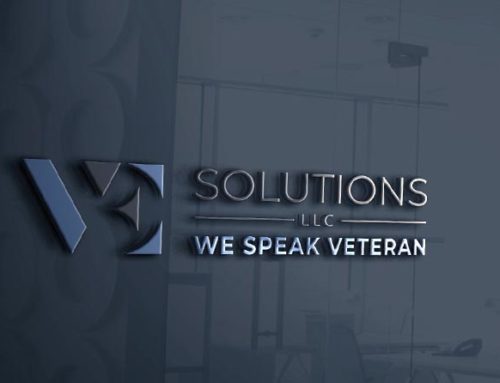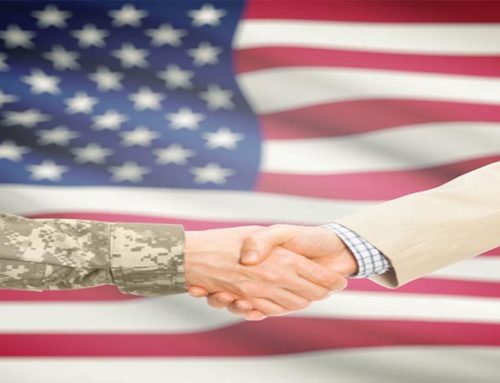About two years before I left the military, I thought, “ok, if you don’t want to go hungry, cold or end up in a depressive state, you better figure out how not to be a statistic.” I started setting up a success roadmap.
I added a few crucial things like:
- build relationships with influencers in my community;
- get a top notch education;
- do something out of the box to establish who you are and what you are good at.
I volunteered, tutoring immigrants for the U.S. Citizenship exam. It was for somewhat selfish reasons. My Spanish was awful, and I needed the practice. I was given a gift. Words cannot sum up the waves of emotion that crash over you when you get a phone call from someone who cries, “We did it. We passed my test. I am going to become a United States citizen.” No lie, I get choked up thinking about it. It was pure. It was honest, and most of all, it wasn’t about me. I felt as though I was in their shoes, and our success was mutual. It was empowering and drove me to get more involved.
Though my last name and proud heritage is Latino, the plight of the inner city Latino was foreign to me. I wish I could blame this on the daily dose of Equal Opportunity I was served up over my military career, but I was raised in a VERY Caucasian neighborhood. For example, my cousins in the city were wearing low-cut Chuck Taylors with wide laces, and I was used to wearing docksiders. I guess ignorance is bliss, because I did not know the difference and did not care. I just wanted to be cool like them. Whereas my inner city compadres saw gang violence, racial inequities and cultural hardships, I did not. What pained me then, and still today, are the negative views of people not like us. I did not believe I fit in. Truth is, my parents and the military demanded that we judge people by their quality, not pigmentation ratio. These were shoes I had never worn and did not belong to me.
Next on the checklist–get an education. I was blessed to have been accepted to a couple graduate programs, and found my home at the Kellogg School of Management. What an incredible, exciting and exhilarating global experience. I was among students and faculty who are the smartest people I ever met, and no kidding, “change the world.” But there it was again; I was older than 90% of my class, and they were dominating in their fields. To make matters more complex, not only was I a military professional, I was a Chief Warrant Officer – a military unicorn. Trying to explain to my classmates what I did for the military or what a Warrant Officer was, in civilian terms, could not have been more difficult. It was impossible for them to understand what it was like to wear “my shoes.”
While in school I began interviewing for a post military career. A Kellogg grad with 20 plus years military experience should have no problem finding the right fit or right career. You often hear, “companies will be throwing offers at you,” except they were not. Add to this challenge the task of figuring out “adequate compensation.” Talk about being torn. On one hand I thought, “if they pay me this, and I get my military retirement, I will be comfortable.” On the other hand, you get bombarded with the online data that says “Kellogg Grads should make this median amount.” Next, I start wondering if I am ruining the curve for my fellow alum by accepting a lowball number. Does salary and position prestige drive the decision making process and more than it should? I was clearly uncomfortable with putting on these new shoes.
It was during an interview when I committed my most catastrophic career-search faux pas. My “ignorance infused arrogance” was near blinding when a large company thought to consider me for its National Director of Veteran Recruiting. No kidding, this was my dream job. When asked, “why would you want this role?” rather than taking my time to be thoughtful, I responded, ego full blown, “it’s an entry point ’till I become the global VP of HR.” No lie, that is exactly how I answered that question. And away I went kicking myself all the way home. Talk about being in over your head and not knowing the landscape. Again, my shoes did not match my feet for the occasion. It was like I was showing up to events in flight deck boots, and my classmates were wearing oxfords.
I realized is that I needed to build something and do something significant that I believed in and was good at. I focused my efforts in the veteran community. I was fortunate to meet the people I did– CEOs of veteran business hubs like Bunker Labs, Big Four consulting firms, finance and tech giants everywhere, who all wanted to help one another succeed. Like the tale of the three bears goes “This one is just right.” It is comfortable to be around such likeminded professionals. It’s like throwing on your favorite New Balance running shoes before a quick morning jog. But, therein lies the problem. Are we growing if we are comfortable? The answer is probably not. As my Special Forces buddies tell me, “get comfortable being uncomfortable.” This is how we grow.
So what I’ve learned is that even if I don’t feel like it is a direct cultural match, or that I fit in exactly, there are a few certainties that drive the need to adapt and adopt:
- I am not the only person who feels like an outsider at times.
- My cultural, business and school relationships deserve the same attention I give my veteran relationships.
- As a military veteran, I am an ambassador for those who are transitioning. What I say and do serves to either pave or obstruct the path for others who come after me.
- Instead of being judgmental of those who aren’t like me, rather, ask this with humility and curiosity: “I am interested to understand how and why you think the way you do.” This will do more to build sincere relationships than contentious ones.
You have to put in the effort and “work the leather” of high quality shoes and relationships alike to make them fit for you.




